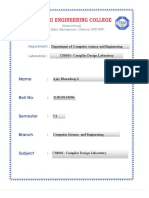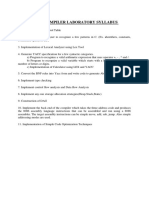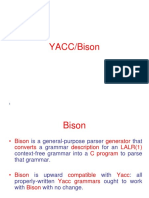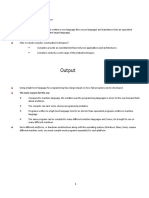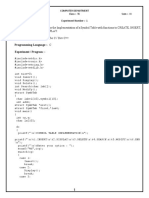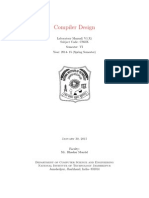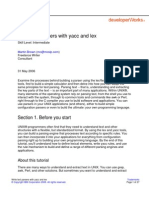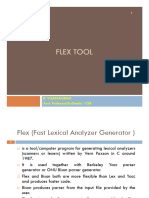0% found this document useful (0 votes)
27 views27 pagesCompiler Tools & Lex/YACC Guide
The document outlines a series of practical experiments focused on using LEX and YACC tools for developing language processors, including lexical and syntax analyzers, a simple calculator, and a symbol table implementation. It provides detailed procedures, code examples, and theoretical explanations for each experiment, emphasizing the setup and functionality of LEX and YACC. Additionally, it covers the representation of the C language using context-free grammar and the implementation of a two-pass assembler.
Uploaded by
Anushka MalaCopyright
© © All Rights Reserved
We take content rights seriously. If you suspect this is your content, claim it here.
Available Formats
Download as PDF, TXT or read online on Scribd
0% found this document useful (0 votes)
27 views27 pagesCompiler Tools & Lex/YACC Guide
The document outlines a series of practical experiments focused on using LEX and YACC tools for developing language processors, including lexical and syntax analyzers, a simple calculator, and a symbol table implementation. It provides detailed procedures, code examples, and theoretical explanations for each experiment, emphasizing the setup and functionality of LEX and YACC. Additionally, it covers the representation of the C language using context-free grammar and the implementation of a two-pass assembler.
Uploaded by
Anushka MalaCopyright
© © All Rights Reserved
We take content rights seriously. If you suspect this is your content, claim it here.
Available Formats
Download as PDF, TXT or read online on Scribd
/ 27







